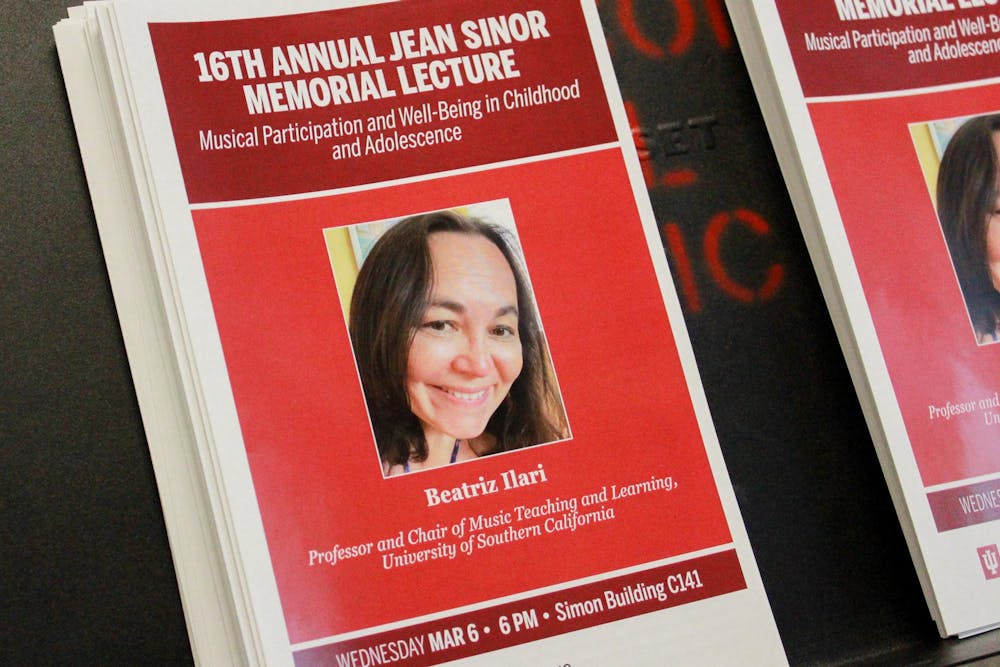The Jacobs School of Music held the 16th annual Jean Sinor Memorial Lecture from 6 - 7:15 p.m., March 6 in the Simon Music Center. Students and faculty filled the room to hear a presentation by Beatriz Ilari, a guest speaker from the Musical Education department of the University of Southern California.
IU doctoral student Ye Ran heard about the event from one of her professors and despite not being a music education student, she said she was still interested.
“It’s a great opportunity for all the students to hear all the different studies,” Ran said. “I feel like people will open their mind to different research questions.”
The lecture was titled "Musical Participation and Well-Being in Childhood and Adolescence.” Ilari discussed a recent research project surrounding how music affects adolescents, especially those in middle school. Ilari said that her study showed that participating in musical activities as a child led to greater success both academically and emotionally.
Higher levels of adolescents’ involvement in music accompanied higher levels of Confidence, which the study says is of the two main factors in wellbeing. Ran said she gained a deeper understanding of well-being from attending the lecture.
“I wasn't quite sure about the definition before,” Ran said, “and now I got to look at a deeper understanding on that.”
Ilari’s research study defined wellbeing as being dependent on Confidence and Competence. It examined how music related to social bonding, caregiving and mental health, three aspects which are associated with well-being.
The presentation also frequently cited stories and quotes from the children she worked with. The audience laughed as she spoke of a boy who was taking guitar lessons with her program.
“There was a kid who said, ‘It’s so cool because there are all these rich kids and I play better than them,’” Ilari said. “It was so cute to read that.”
In a Q&A hosted after the lecture, the audience asked questions regarding children’s levels of agency with regards to their music preference. They also discussed how music affected adolescents in a larger sense. Ilari said she was especially interested in looking at how children’s well-being was affected after the pandemic.
“I wanted to know what was going on with adolescents especially after we had gone through this massive lockdown,” Ilari said. “The other piece was I wanted to understand the role that music participation would play.”
Ilari said when she was approached to create the study of music and well-being, she accepted on the condition that the work focus on the topic of musical education specifically with children. Ilari took a different approach to the research process, working directly with the children as opposed to conducting research through the parents.
“I wanted to get information from them, not from their parents,” she said. “The parents will say things but the kids are always gonna say something else.”
What the children said shone a light on the importance of music in one's daily life. Ilari said the impact the study had on the children was remarkably profound, concluding her presentation with a quote from a middle schooler involved in the study.
“Music is the closest thing to a time machine that we will ever have,” the adolescent wrote. “When we want to transport ourselves into another time or place, we can listen to music or play our instruments, and feel those emotions.”




